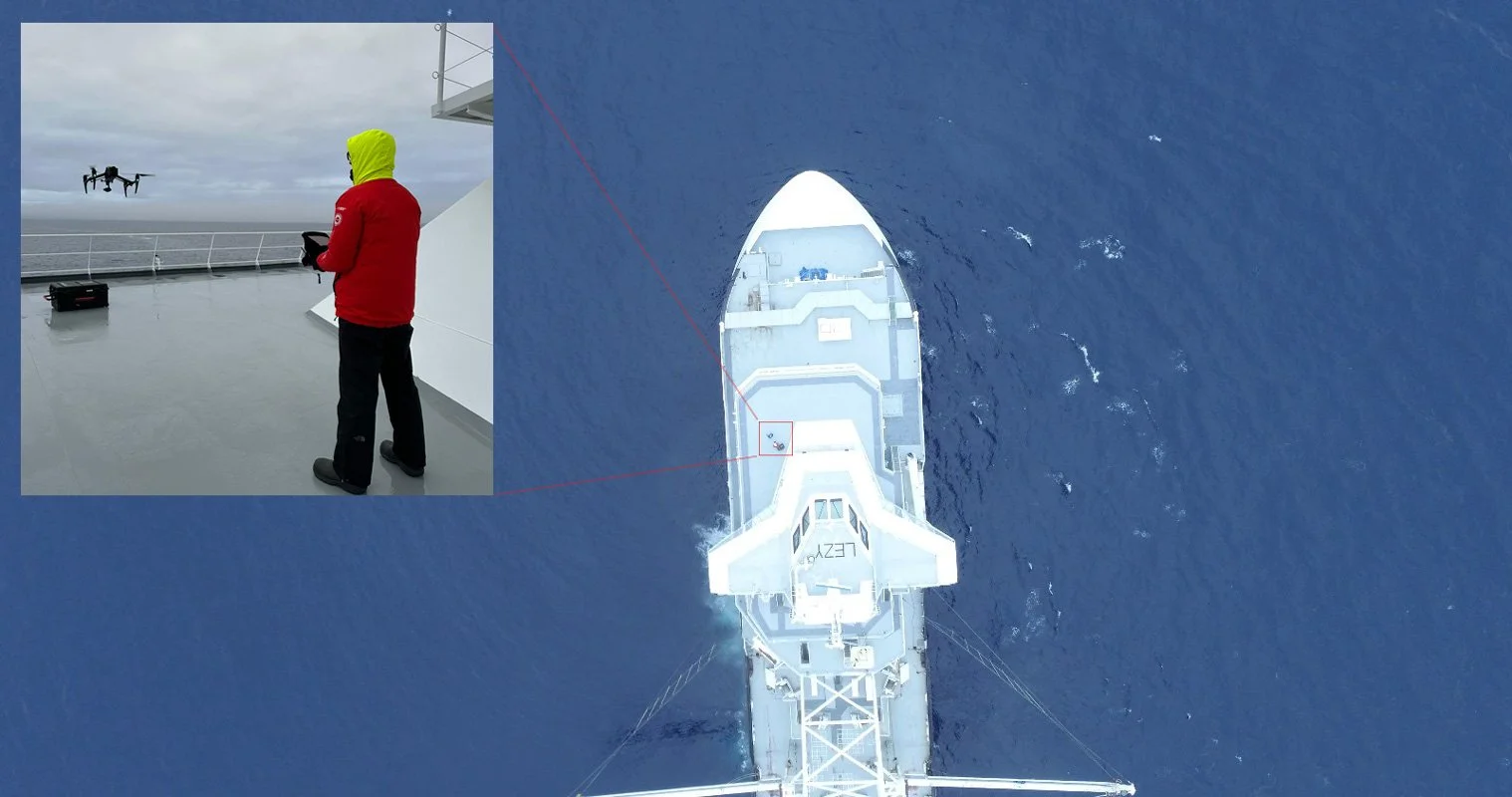ARK and NPI launched study on whale interactions with fishing vessels
ARK has partnered with the Norwegian Polar Institute (NPI) to conduct a comprehensive study on interactions between whales and krill fishing gear. This collaborative, industry-led initiative aims to improve our understanding of how whales interact with different krill fishing methods and identify ways to minimize any potential impacts. Even though whale mortality in krill fisheries has been infrequent, we consider every loss significant and are determined to strengthen our practices to avoid future harm.
Dedicated scientific observers conducted daily counts of whales around the fishing vessel.
Between March and May 2025, researchers conducted fieldwork aboard two krill fishing vessels operating in Antarctic waters. One vessel employed a continuous pumping system, while the other utilized traditional trawling methods. This dual-vessel approach allowed researchers to examine whale interactions across different gear types.
To detect and document any whale encounters with fishing equipment, underwater cameras were installed within the trawl nets on both vessels. These recordings are being analyzed to better understand when, how often, and under what conditions whales may come into contact with the gear.
Underwater cameras were installed within the net to record any interaction with the fishing gear.
Simultaneously, trained scientific observers onboard recorded whale presence and abundance using binoculars. Their observations were supported by aerial surveys using unmanned aerial vehicles (UAVs or drones), which captured high-resolution imagery and broader visual coverage. This dual method allowed for more accurate assessments of whale abundance, species identification, age classification, and behavioral patterns around the vessels.
In addition, researchers collected detailed data on fishing activities—including catch volumes, net deployment durations, and gear configurations—as well as environmental parameters. This integrated dataset will be analyzed to explore links between whale behavior and fishing operations.
The ultimate goal of this initiative is to support evidence-based policy, improve operational practices, and contribute to the development of best practices for the krill fishing industry. Through this work, ARK and NPI are taking concrete steps toward sustainable krill harvesting practices.
UAV (drones) were deployed to perform detail assessments of whale composition and behavior around the vessels.



